Partners
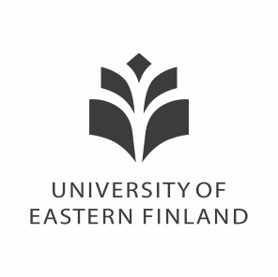
The University of Eastern Finland (UEF) is one of the largest universities in Finland with over 15000 students and 2500 staff members on two campuses. The Faculty of Health Sciences, located at the UEF Kuopio campus, is unique in Finland and offers education in medicine, pharmacy, dentistry, biomedicine and health sciences. The multidisciplinary research carried out at UEF is of high international standard and has been ranked among the best in several fields. The top-level international strategic research areas at the Faculty of Health Sciences departments participating to EDCMET, A.I.Virtanen Institute, Institute of Biomedicine and School of Pharmacy, address the global challenges of ageing, lifestyles and health, including cardiovascular and metabolic diseases.
Within EDCMET, UEF is responsible for the overall coordination and management of the project. UEF scientists from five research groups will be involved in all scientific work packages, including identification of mechanisms of action of EDs in silico, development of ED screening methods using reporter assays, in vitro metabolic profiling of EDs and multi-omics analyses for ED-related AOP refinement and development, development of in vivo models to assess metabolic effects of EDs, and the search for biomarkers for ED exposure from human samples.
At UEF, there are five research groups working in the project
- Vittorio Fortino, WP1
- Paavo Honkakoski, WP2
- Anna-Liisa Levonen, WP2 and WP3
- Jorma Palvimo, WP2
- Jaana Rysä, WP3 and WP4

Anna-Liisa Levonen
Coordinator, Professor
University of Eastern Finland, A.I. Virtanen Institute
tel. +358 40 3589907
email: anna-liisa.levonen (at) uef.fi
website: www.uef.fi

The University of Oulu (UOULU) is an international science university founded in 1958. UOULU community is 13500 students and 2800 employees strong, and one of the biggest and the most multidisciplinary universities in Finland. The university consists of eight faculties and many specialized research units. The university strategy is based on five thematic, internationally significant research focus areas: Creating sustainability by materials and systems, molecular and environmental basis of life-long health, digital solutions in sensing and interactions, earth and near-space system environmental change, and understanding humans in change. The Faculty of Medicine, an integral part of the Kontinkangas Life Sciences Campus, is situated next to the University Hospital of Oulu. The campus is a unique combination of partners in research, education, health services and business.
Within EDCMET, UOULU leads two scientific work packages: WP3, In vivo models for the assessment of metabolic effects of EDs, and WP4, Population based assessment of exposure to chemicals and ED-related metabolic effects. The scientists aim to development and optimize protocols for in vivo tests, support alternative test development, discover novel methods and biomarkers of exposure in population studies, estimate human health risk of EDs, and to characterize of mode of action and adverse outcome pathway for selected EDs.
In the University of Oulu, three research groups work in the project:
- Jukka Hakkola, WP3
- Arja Rautio, WP4
- Marjo-Riitta Järvelin, WP4

Jukka Hakkola, Professor
University of Oulu, Research Unit of Biomedicine
tel: +358-924-485235
email: jukka.hakkola(at)oulu.fi

Arja Rautio, Professor
University of Oulu, Thule Institute and Faculty of Medicine
tel: +358 40 58 55 776
email: arja.rautio(at)oulu.fi
website: www.oulu.fi
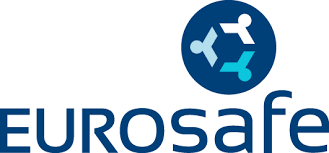
Eurosafe has long-standing experience of working in the field of absorption, distribution, metabolism and elimination (ADME), in vitro metabolism studies such as CYP enzyme phenotyping, inhibition and induction studies, transporters studies, drug-drug interaction studies for pre-clinical drug development. Eurosafe also has expertise in the domains of in silico studies such as structure modeling and molecular docking for protein structure prediction for individual or small set of proteins, toxicity screening and quantitative structure-activity relationship (QSAR) and tissue specific screening. The in silico omics studies also extend to search for signature sequences on HepaRG genome for toxicity prediction of test compounds and EDs.
Within EDCMET, Eurosafe will participate to WPs 1, 2 and 5.
WP1: In silico methods to identify endocrine disrupting effects of chemicals
WP2: In vitro and omics methods to assess metabolic effects of Eds
WP5: Dissemination and outreach

Thomas Darde
email: t.darde (at) wepredic.com
website: www.eurosafecro.com

The Dutch biotech company PamGene has developed a micro array platform for activity proteomics, which allows for functional characterization of proteins and modulation thereof by compounds. The target protein is repeatedly pumped through a porous solid phase with immobilized probes and enables diffusion-independent interaction kinetics resulting in short assay time and thus preservation of target protein integrity.
Using this approach, the activity of Nuclear Receptors (NRs), a family of ligand-activated transcription factors, is characterised through binding to a set of peptide probes representing a wide range of coregulator proteins. In vivo, the coregulators that are recruited by the NR at the target gen locus, modulate local chromatin structure thus regulate DNA accessibility for gene transcription by RNA polymerase. Differential (co)expression and utilisation of coregulators for cell types and genes play an important role in compound response.
Characterisation of compounds through the Micro array Assay for Real-time Coregulator-Nuclear receptor Interaction (MARCoNI) has been successfully applied in various drug development programs as well as identification and characterisation of toxic substances.
Within the in vitro WP2 of EDCMET, PamGene will subject a series of ED candidate chemicals to MARCoNI using a range of NRs. This screen will provide mechanistic data for the identification of compounds with a capability of canonical NR activity modulation. These data can be used to 1. generate or validate in silico models for target engagement and AOP (WP1), 2. bridge and validate in vitro assays (WP2) such as target binding and gene reporter assays and 3. functionally classify EDs for compound prioritisation and as a predictor for (differential) AOPs in general.

Rinie van Beuningen
VP Business Development
email: rvbeuningen (at) pamgene.com
tel. +31 73 615 80 80
website: www.pamgene.com

Innovative, interdisciplinary, international: These three words summarize what makes the University of Tübingen special. Excellent research and teaching are Tübingen’s answer to the challenges of the future in a globalized world. We maintain exchanges with partners around the globe – both at institutions of higher education and at non-university research institutions. Networks and cooperation across faculty and subject boundaries are the pillars of our successful strategy. This is reflected in our good position in international rankings. In addition, we are one of the eleven German universities distinguished with the title of “excellent.”
Within EDCMET, the Drug Design research group at Internal Medicine VIII will be engaged in molecular modeling and molecular dynamics simulations of different endocrine protein targets, especially nuclear receptors. The research group, lead by guest professor Antti Poso, will use novel computational methods to allow more precise evaluation and predictions of atomistic interactions between human proteins and potentially harmful compounds. The final aim is to develop better and more accurate ways to predict biological activity of organic compounds.

Professor Antti Poso
email: [email protected]
phone: +358-40-3552462 (Mobile) and +49(0)7071-29 76969
University Hospital Tübingen
Dept. of Internal Medicine VIII
Otfried-Müller-Strasse 14
72076 Tübingen
Germany
website: https://uni-tuebingen.de/en/

The Faculty of Pharmacy in Hradec Králové continues in the old and long-time tradition of the education of pharmacy as well as pharmaceutical research at the Charles University. The research activities involve all aspects of contemporary pharmaceutical sciences and the Faculty of Pharmacy at the Charles University is in terms of scientific activity among the top institutions in the Czech Republic. Every year more than a hundred works successfully published in prestigious scientific journals are issued by our research staff, and our staff are the authors of a number of patents and inventions.
Within EDCMET project, the group of Professor Pavek at the Department of Pharmacology and Toxicology will participate in development of cellular screening method for interaction testing of potential endocrine disruptors with nuclear receptors. In addition, we will work on animal models for analysis of hormonal and metabolic interference of endocrine disruptors.
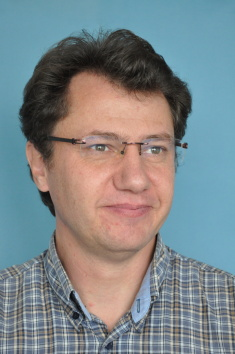
Prof. PharmDr. Petr Pávek, Ph.D
Website
Charles University, Faculty of Pharmacy in Hradec Králové
Department of Pharmacology and Toxicology
Akademika Heyrovského 1203
500 05 Hradec Králové
the Czech Republic
websites: www.faf.cuni.cz and https://www.cuni.cz/UKEN-1.html

The Division of Human Nutrition and Health at Wageningen University pursues an integrated approach in human nutrition education and research at the level of the cell, the individual, and the population. The Division covers the full causal chain from determinants of food choice to the impact of foods and nutrients on health and disease. Within this Division, the Nutrition, Metabolism and Genomics research group investigates the molecular mechanism of action of dietary nutrients and their impact on human health and metabolism.
Within EDCMET, the Nutrition, Metabolism and Genomics group will be involved in the assessment of the metabolic effects of EDs using in vivo models and OMICS tools. The groups has long standing expertise in the study of metabolic dysfunction in rodent models, as well as in the application of OMICS tools in nutrition and metabolism research.

Sander Kersten, PhD
Professor of Nutrition, Metabolism and Genomics
Division of Human Nutrition and Health
Wageningen University
Stippeneng 4
6708WE Wageningen
Netherlands
email: [email protected]
phone: +31 317 485787 or +31 317 485177
website: https://www.wur.nl/en/wageningen-university.htm

The University of Leeds (UoL) is a leading member of the UK’s prestigious research-intensive Russell Group universities, and is ranked within the top 100 universities worldwide. In 2017, it was named the UK University of the Year for its outstanding commitment to student education (Times Higher). The most recent Research Excellence Framework (REF) exercise identified that >82% of its research activity was either “world leading” or “internationally excellent”. Leeds hosts over 32,000 students from 141 countries attached to 560 different undergraduate and 300 postgraduate degree programmes. In 2015/16, it had an annual income in excess of €752m and its annual research income exceeded €150m of which 14.3% was derived from EU awards.
Within EDCMET, UoL will lead work-package 1, the in silico exploration of the effects of ED chemicals. Specifically, UoL will reconstruct a dynamic model of human liver metabolism, informed and validated by experimental data from the literature and other work-packages within EDCMET. We will use this model to explore how metabolic disruption by EDs can lead to fatty liver, a condition that is associated with long-term adverse health effects, including obesity, diabetes, and liver cancer. Through this approach, we aim to inform future risk assessments of the potential risk of ED exposure to human health.

Professor Nick Plant
Dean of Research Quality and Impact
Professor of Systems Biology
email: n.plant (at) leeds.ac.uk
website: www.leeds.ac.uk
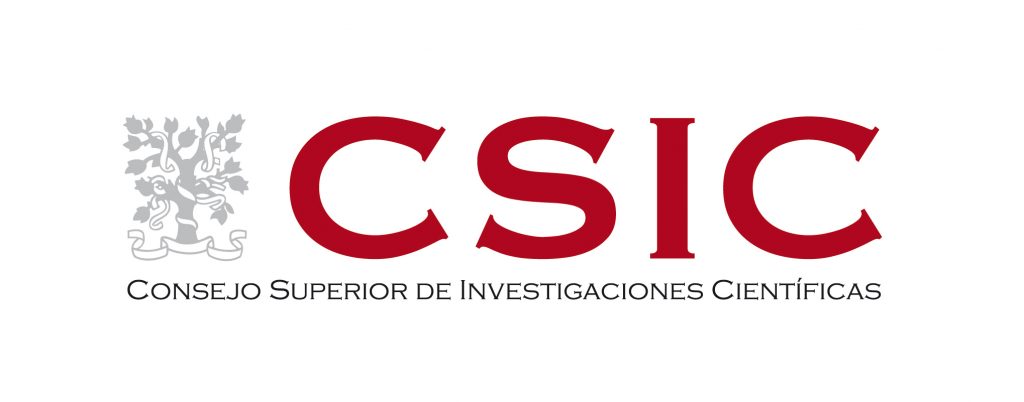

The Group of study on Trace Pollutants in Humans of the Department of Environmental Chemistry of the Institute of Environmental Assessment and Water Research (IDӔA-CSIC) is devoted to the analysis of organic pollutants and metals of environmental or toxicological interest that are present in air, water, sediments, soils and organisms as well as those found at trace levels in human fluids such as serum, breast milk, urine, meconium, hair and exhaled breath. The developed methods are designed for the analysis of large numbers of samples to be consistent with the requirements of cohort studies. The group performs research on modelling the human intake processes of these compounds and participates in the study of correlations between internal pollutant doses and health effects.
Within EDCMET, the group will study the concentrations of selected EDs such as hexachlorobenzene, 4,4’-DDE and other DDT metabolites, polychlorobiphenyls (including congener 99), vinclozolin, 3-phenoxybenzoic acid, carbofuran and bisphenol A. Analytical methods for the analysis of these compounds in urine or serum will be developed if needed. In addition, new EDs identified upon application of EDselect will be measured in the samples collected from the cohorts as this group has recently acquired a GC-MS provided with a q-exactive Orbitrap that allows the non-target identification and quantification of compounds with high-resolution mass spectrometry. This partner has also LC-MS with the Orbitrap technology that allows obtaining mass spectra in scan modes without loss of sensitivity. This task will allow the experimental check of the in silico ED results by analyzing the new Eds in human fluids and study of the metabolic dysfunctions in the cohorts. CSIC has a strong expertise in the development of the analytical methods for analysis of trace constituents.

Joan O. Grimalt
Department of Environmental Chemistry
Institute of Environmental Assessment and Water Research (IDAEA)
Spanish Council for Scientific Research (CSIC)
Jordi Girona, 18
08034-Barcelona
phone: +34934006118
fax: +34932045904
email: joan.grimalt (at) idaea.csic.es
personal website: www.cid.csic.es/homes/grimalt/
website: www.idaea.csic.es
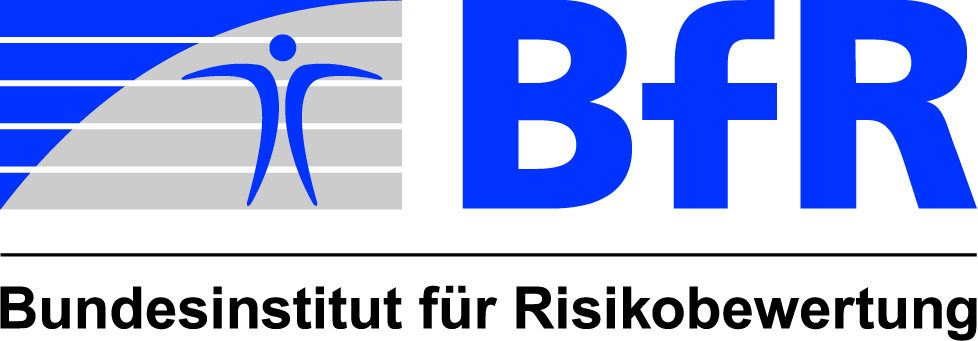
The German Federal Institute for Risk Assessment (BfR) is the national institute which prepares expert reports and opinions on questions concerning the safety of food, feed and chemicals, as well as consumer health protection, on the basis of internationally recognised scientific evaluation criteria. It advises the Federal Government and other institutions and interest groups in these areas. The BfR conducts its own research on topics that are closely linked to its assessment tasks. It is an institution with legal capacity within the portfolio of the German Federal Ministry of Food and Agriculture (BMEL).
Within EDCMET, the Department of Food Safety of the BfR will be engaged in in vitro experimentation related to functional metabolic profiling of EDs and multi-omics analyses devoted to ED-related AOP refinement and development. BfR will also participate in the analyses of animal studies with selected EDs in order to elucidate in vivo effects and related AOPs. BfR will lead the EDCMET activities related to dissemination and outreach, including effective communication and stakeholder involvement, workshop organization, and communication of the project results to supranational bodies to foster future regulatory implementation of ED test systems.

Albert Braeuning
German Federal Institute for Risk Assessment
Max-Dohrn-Str. 8-10
10589 Berlin
Germany
email: pressestelle (at) bfr.bund.de
phone: +49-(0)30-18412-88000
fax: +49-(0)30-18412-22399
website: www.bfr.bund.de

Norwegian University of Science and Technology, department of Public Health and Nursing is one of eight international partners supported by the European Commission Horizon 2020 – Research and Innovation Framework Programme.
The project Metabolic effects of Endocrine Disrupting Chemicals: novel testing methods and adverse outcome pathways (EDCMET), brings together experts in various research fields, toxicologists, biologists with understanding of the molecular mechanisms of metabolic disease, in vitro and in vivo methodological skills and epidemiologists linking environmental exposure to adverse metabolic outcomes.
NTNU contributes in the project with own research on topics closely linked to its assessment tasks, such as population based studies. Endocrine disrupting chemicals in the human body, at birth, in childhood and later. Cohorts from Scandinavia, Russia and Spain with different exposure patterns are available. Estimation of human health risks for selected endocrine disrupting compounds will be evaluated.

Professor Jon Øyvind Odland
email: jon.o.odland (at) ntnu.no
website: www.ntnu.edu
